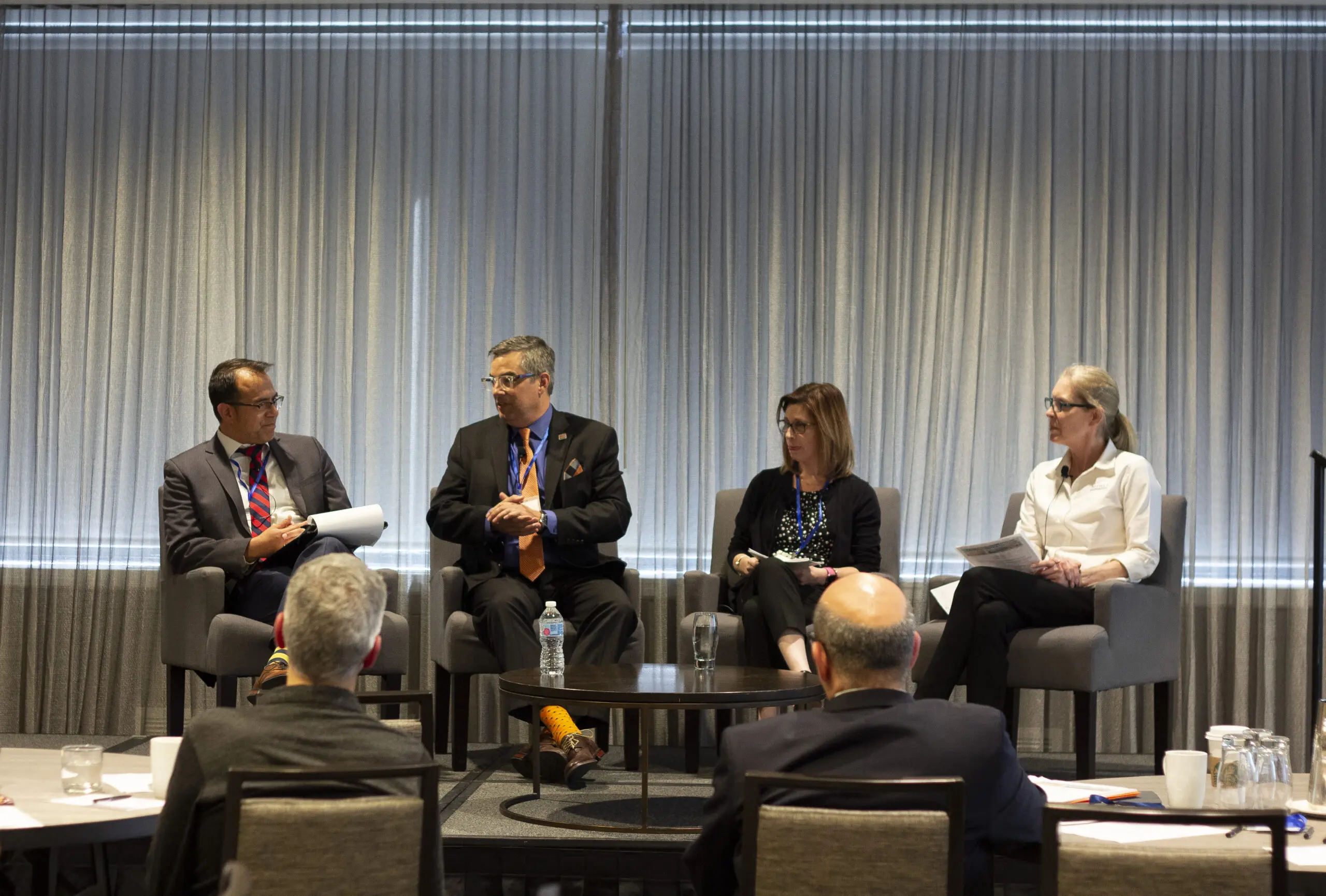Building Data Systems for the Science of Patient Engagement: A Recap of the NHC’s Chief Medical and Scientific Officer Conference
10/25/2018
By: Elisabeth Oehrlein, PhD, MS, NHC Senior Director, Research and Programs
Last week, chief medical and scientific officers from patient organizations and industry groups met in Washington, DC, for Sharing Patient-Centered Outcomes Data: Building A Better Mousetrap Based on Learnings from the Research Community, a day-and-a-half conference focused on current, cutting-edge approaches to building data systems to support the science of patient engagement.
In general, participants discussed how building patient engagement into processes is not a small task for any company or organization, but that it’s critical for meaningful engagement. They emphasized that not all emerging digital technologies are patient centered, stressing patients need to be involved early in their development to ensure patient centricity.
During the opening keynote, Sean Khozin, MD, MPH, Director, Information Exchange and Data Transformation and Associate Director, Oncology Center of Excellence, Food and Drug Administration (FDA), discussed Patient Provided Information: How Best to Store, Integrate, Share, and Learn? Dr. Khozin provided an update on the FDA’s work to bring the patient perspective to medical product development. He discussed the Agency’s organizational restructuring to bring greater expertise to drug review and new initiatives such as oversight of medical software and introduction of machine learning in clinical design.
The rest of the day was filled with six panels on wide-ranging topics such as Transforming Data Silos into an Arsenal, Data Warehousing and Sharing, and The Patient in the Driver’s Seat.
Joni Rutter, PhD, Director of Scientific Programs, NIH All of US Research Program, spoke about the NIH’s national effort to collect patients’ information to find cures in the Transforming Data Silos into an Arsenal session. Dr. Rutter said that the goal of this initiative is to move beyond observing outcomes to predicting and changing them.
During The Patient in the Driver’s Seat, panelists Karen Erickson, Associate Executive Director, Community Engagement, Alpha-1 Foundation; Robert McBurney, PhD, CEO, Accelerated Cure Project for Multiple Sclerosis; and Leslie Hanrahan, Vice President, Education and Research, Lupus Foundation of America, said patient-provided information is the backbone of patient-focused drug development. They discussed work their organizations are doing to bring the patient perspective to their research programs and encouraged drug companies to do the same.
Additionally, Theresa Mullin, PhD, Associate Director for Strategic Initiatives, Center for Drug Evaluation and Research at the FDA spoke about Creating the FDA Patient-Experience Data Repository. She offered an update on what FDA is doing to create guidance for industry to engage patients in drug development. She also discussed FDA’s recent request for information to develop core clinical outcome assessment sets to understand and systematically capture the outcomes that matter to patients.
More information about the meeting, including the slides used during the various presentations, can be found on the NHC website.
